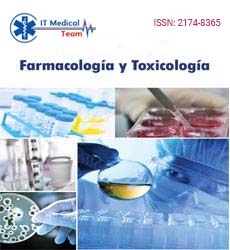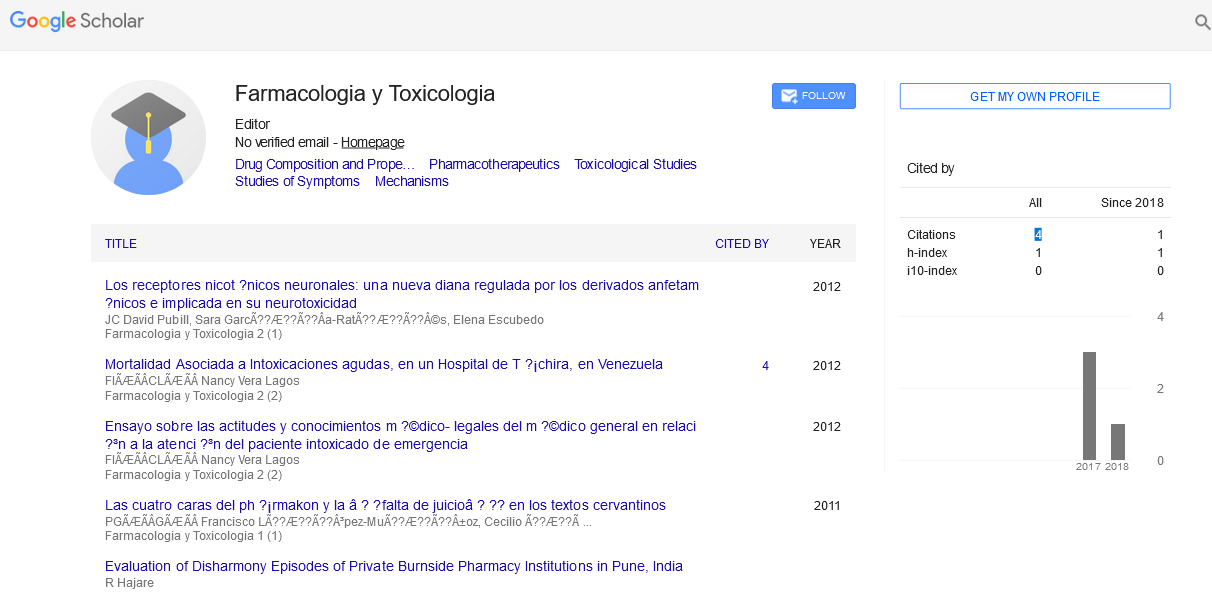Perspective - (2024) Volume 14, Issue 2
Safety and Toxicologic Evaluation of Edible Pongamia Oil: A Comprehensive Review
Yasser Bustanji*
Department of Toxicology, University of Vanadien, Dubai, United Arab Emirates
*Correspondence:
Yasser Bustanji, Department of Toxicology, University of Vanadien, Dubai,
United Arab Emirates,
Email:
Received: 06-Mar-2024, Manuscript No. IPFT-24-14637;
Editor assigned: 11-Mar-2024, Pre QC No. IPFT-24-14637 (PQ);
Reviewed: 25-Mar-2024, QC No. IPFT-24-14637;
Revised: 03-Apr-2024, Manuscript No. IPFT-24-14637 (R);
Published:
11-Apr-2024
Introduction
Edible oils play a crucial role in human nutrition, providing
essential fatty acids and serving as a cooking medium. Among
the various edible oils available, pongamia oil has gained
attention for its unique properties and potential health benefits.
This article aims to explore the safety and toxicologic evaluation
of edible pongamia oil, shedding light on its composition,
nutritional value and potential risks. Pongamia pinnata,
commonly known as Indian beech or pongam, is a versatile tree
native to India and widely distributed across tropical regions.
Among its various applications, pongamia oil has gained
attention in recent years for its potential as a biodiesel feedstock
and its use in traditional medicine and skincare. As interest
grows in utilizing pongamia oil for edible purposes,
understanding its safety and toxicological profile becomes
imperative. This article aims to provide a comprehensive review
of the safety and toxicologic evaluation of edible pongamia oil.
Description
Composition and nutritional value
Edible pongamia oil is extracted from the seeds of the
pongamia pinnata tree, commonly known as the Indian beech or
karanja. The oil is rich in bioactive compounds, including
pongamol, karanjin and flavonoids. It is important to note that
the nutritional composition of pongamia oil can vary depending
on factors such as cultivation conditions and extraction
methods. Pongamia oil consists of triglycerides, fatty acids,
flavonoids and other bioactive compounds. The predominant
fatty acids include oleic acid, linoleic acid, palmitic acid and
stearic acid. These components contribute to the oil's nutritional
and pharmacological properties.
Pongamia oil is a source of unsaturated fatty acids,
particularly oleic acid and linoleic acid. These fatty acids
contribute to the oil's nutritional profile, offering potential
cardiovascular benefits and supporting overall health.
Additionally, pongamia oil contains antioxidants that may play a
role in reducing oxidative stress in the body.
Safety assessment
Numerous studies have evaluated the safety of pongamia oil
for human consumption. Acute toxicity studies conducted in
animal models have shown that pongamia oil is relatively safe at
moderate doses. However, high doses may lead to adverse
effects such as gastrointestinal disturbances and liver toxicity.
Chronic toxicity studies are limited, warranting further
investigation to determine the long-term effects of prolonged
pongamia oil consumption.
Acute toxicity
Studies on acute toxicity help determine the immediate
adverse effects of a substance. In the case of edible pongamia
oil, research has shown low acute toxicity levels. Animal studies
have demonstrated that high doses of pongamia oil did not
result in severe toxic effects, suggesting a favorable safety
profile.
Chronic toxicity
Chronic toxicity studies focus on prolonged exposure to a
substance to identify potential long-term effects. Limited
research has been conducted on the chronic toxicity of
pongamia oil in humans. Future studies should address this gap
to ensure a comprehensive understanding of the oil's safety over
extended periods.
Genotoxicity and mutagenicity
Genotoxicity and mutagenicity studies assess the potential of
a substance to cause damage to genetic material. Existing
research on pongamia oil has shown no significant genotoxic or
mutagenic effects. However, continued investigation is essential
to confirm these findings and ensure the safety of prolonged
exposure.
Allergenicity
Allergenic reactions to edible oils can be a concern for some
individuals. Pongamia oil, like any other food product, may
trigger allergic responses in susceptible individuals. It is crucial to conduct allergenicity studies to identify potential allergens
present in the oil and assess the risk for allergic reactions.
Reproductive and developmental toxicity
Understanding the impact of edible pongamia oil on
reproduction and development is crucial for ensuring the safety
of its consumption, particularly for pregnant women and
children. Limited data are available on this aspect, necessitating
further research to draw conclusive evidence on potential
reproductive and developmental effects.
Metabolism and pharmacokinetics
Limited research is available regarding the metabolism and
pharmacokinetics of pongamia oil in humans. However, studies
in animal models suggest that pongamia oil is metabolized in a
manner similar to other edible oils, primarily in the liver. Further
investigations are needed to elucidate the specific metabolic
pathways and bioavailability of pongamia oil constituents
following oral administration.
Potential health benefits
Despite concerns regarding its safety, pongamia oil offers
several potential health benefits. Its rich fatty acid profile,
particularly the presence of omega-3 and omega-6 fatty acids,
may confer cardiovascular and anti-inflammatory effects.
Moreover, the oil's antioxidant properties attributed to
flavonoids and phenolic compounds could help mitigate oxidative stress and reduce the risk of chronic diseases.
However, these potential benefits require validation through
well-designed clinical trials.
Regulatory considerations
The regulatory status of pongamia oil varies among countries.
While it is commonly used in traditional medicine and skincare
products, its use as an edible oil may require regulatory approval
depending on local regulations. Regulatory agencies such as the
Food and Drug Administration (FDA) in the United States and the
European Food Safety Authority (EFSA) in Europe establish
safety guidelines and permissible limits for novel food
ingredients like pongamia oil.
Conclusion
Edible pongamia oil presents itself as a promising addition to
the array of edible oils available, boasting a unique composition
and potential health benefits. While existing research suggests a
favorable safety profile, there is a need for more comprehensive
studies, especially in areas such as chronic toxicity, allergenicity
and reproductive and developmental toxicity.
Consumers should exercise caution and stay informed about
the latest research findings regarding Edible pongamia oil.
Additionally, regulatory bodies and health organizations play a
crucial role in establishing safety standards and guidelines for
the production and consumption of novel food products like
pongamia oil.
Citation: Bustanji Y (2024) Safety and Toxicologic Evaluation of Edible Pongamia Oil: A Comprehensive Review. Farmacologia Toxicologia Vol.14
No.2: 013





